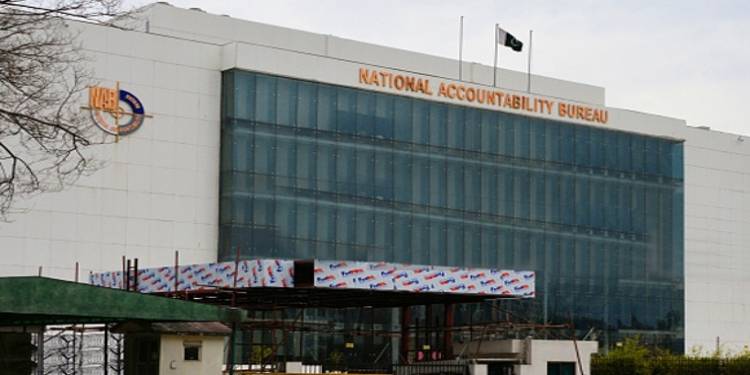
The government is currently considering a proposal to give the chief of the National Accountability Bureau (NAB) more authority, months after it altered the law to take away the majority of the accountability watchdog’s authority.
A draft would soon be made available to the federal cabinet in this regard, a government source said. It will give the NAB chairman the power to refer non-cognizable cases to appropriate forums when they cannot be heard in accountability courts.
The NAB chairman would also have the authority to end non-cognizable cases, and the relevant departments would be permitted to open new investigations in these situations.
The plan prohibited the transfer of one accountability court's cases to another accountability court.
The NAB deputy chairman will execute these powers in the chairman's absence. The deputy chairman will be a grade-21 officer, which is the equivalent of an army major general or lieutenant general.
The federal government will be permitted to designate any NAB official to exercise the chairman's functions in the absence of the deputy chairman.
The Senate deputy chairman will be regarded as a public office bearer for the first time under the plan and fall under NAB's jurisdiction. Before this, the only person classified as holding a public position was the Senate chairman.
After the government named retired Lt Gen (retired) Nazir Ahmad as the new NAB chairman for three years, the action was taken two days later. Aftab Sultan was replaced by Mr. Butt after he left his position last month due to "intervention" and "pressure".
Political analysts believe this could be an attempt to rein in Pakistan Tehreek-e-Insaf (PTI) Chairman Imran Khan.
On March 4, the federal government appointed Lt Gen (retd) Nazir Ahmad Butt as the new chairman of National Accountability Bureau (NAB) for three years after Prime Minister Shehbaz Sharif and Leader of the Opposition in the National Assembly, Raja Riaz, reached a consensus on the name of the retired general.
The government has chosen the new accountability czar on the heels of the prime minister’s meetings with the Chief of Army Staff (COAS), General Syed Asim Munir, President of Pakistan Peoples Party Parliamentarians (PPPP) Asif Ali Zardari and Chief of Jamiat Ulema-e-Islam-Fazl (JUI-F) Maulana Fazlur Rehman, among others.
A draft would soon be made available to the federal cabinet in this regard, a government source said. It will give the NAB chairman the power to refer non-cognizable cases to appropriate forums when they cannot be heard in accountability courts.
The NAB chairman would also have the authority to end non-cognizable cases, and the relevant departments would be permitted to open new investigations in these situations.
The plan prohibited the transfer of one accountability court's cases to another accountability court.
The NAB deputy chairman will execute these powers in the chairman's absence. The deputy chairman will be a grade-21 officer, which is the equivalent of an army major general or lieutenant general.
The federal government will be permitted to designate any NAB official to exercise the chairman's functions in the absence of the deputy chairman.
The Senate deputy chairman will be regarded as a public office bearer for the first time under the plan and fall under NAB's jurisdiction. Before this, the only person classified as holding a public position was the Senate chairman.
After the government named retired Lt Gen (retired) Nazir Ahmad as the new NAB chairman for three years, the action was taken two days later. Aftab Sultan was replaced by Mr. Butt after he left his position last month due to "intervention" and "pressure".
Political analysts believe this could be an attempt to rein in Pakistan Tehreek-e-Insaf (PTI) Chairman Imran Khan.
On March 4, the federal government appointed Lt Gen (retd) Nazir Ahmad Butt as the new chairman of National Accountability Bureau (NAB) for three years after Prime Minister Shehbaz Sharif and Leader of the Opposition in the National Assembly, Raja Riaz, reached a consensus on the name of the retired general.
The government has chosen the new accountability czar on the heels of the prime minister’s meetings with the Chief of Army Staff (COAS), General Syed Asim Munir, President of Pakistan Peoples Party Parliamentarians (PPPP) Asif Ali Zardari and Chief of Jamiat Ulema-e-Islam-Fazl (JUI-F) Maulana Fazlur Rehman, among others.

